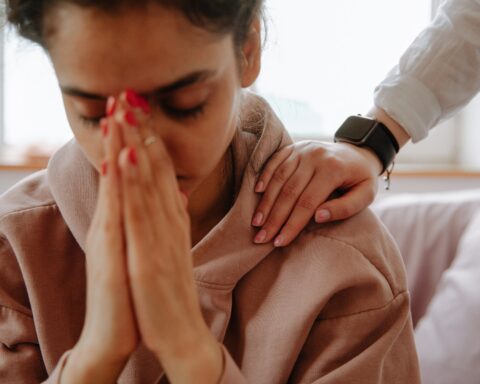Security and media experts are questioning the decision of police to grant journalists access to the personal belongings of the San Bernardino shooters.
Syed Farook and Tashfeen Malik, a married couple, opened fire at a staff holiday party at the Inland Regional Center in San Bernardino, California killing 14 people and injuring 21 others. Authorities later said the attacks were terrorist related.
A few days later, reporters had access to the couple’s apartment and personal items such as photographs, passports, ID cards and social security cards. Identity cards of family members who were not linked to the attacks were also shown on live television.
Police to blame?
“I don’t understand why the place was not secured better and all that material taken away as potential evidence,” says Dane Rowlands, a security expert and the head of Carleton University’s Norman Paterson School of International Affairs.
“This was inappropriate for the authorities to have allowed to happen.”
Rowlands says whether there was evidence or not, that was a crime scene and those items should have been taken away and not made available to journalists.
“This was inappropriate for the authorities to have allowed to happen,” he says. “I can’t imagine any motivation to have allowed them to do so except having made a mistake on this.”
MSNBC, one for the television outlets that showed a live feed from the apartment, said it was cleared by the FBI, but the LA Times also reported the San Bernardino police saying the apartment was still an active crime scene.
Reporters said the landlord, Doyle Miller, allowed them in, but he told CBS he was rushed. He later clarified the reporters were given permission to enter.
Journalists took advantage
Paul Adams, a journalism professor at Carleton University, says the journalists benefitted from the police officers’ inability to protect a crime scene.
“The issue of going into the apartment has to do more with the police maintaining a crime scene than it is to do with any journalistic ethics,” Adams says. “If you have access, it’s part of the story and I think it’s appropriate to tell that story.”
“I believe the journalists were well within their rights to show whatever information was available.”
Concerns have been raised about the ethics in showing details of personal information of family members who were not linked to the shooting at all.
For example, MSNBC showed close up shots of personal identity cards belonging to Farook’s mother.
Canadian media expert and head of strategic communications at Earnscliffe Strategy Group in Ottawa, Elly Alboim, says showing details of personal information of others, especially those who are not directly linked to the attacks, infringes on their personal rights.
“It’s a clear violation of privacy and not appropriate,” he says.
Alboim adds journalists should know better, but that they get carried away by the heat of the moment to publish everything they have access to.
Sandy Johnson, president of the American-based National Press Foundation, says journalists are within their right to show and give any details they want to give out.
“I believe the journalists were well within their rights to show whatever information was available, whether it was from this particular apartment or whether it was from the scene of the shooting,” she says.
Advice for media
However, Johnson notes, the prevalence of reporting through social media can put pressure on journalists to share information without going through normal editing processes.
“The tendency to jump [to] conclusions that every attack is a terrorist attack is problematic.”
“I believe publishing information should go through an editing level because an editor can have influence and walk the reporter through the process,” she says. “That’s an age old tradition.”
Rowlands says despite the probability of terrorism being quite low compared to other risks, the threat of it is overplayed in the media. This leads to a public reaction that does not reflect the risk.
He cautions journalists to be wary of how they report such issues.
“The tendency to jump [to] conclusions that every attack is a terrorist attack is problematic in terms of potential deflection of the public debate towards issues that are overplayed already,” he says. “This is something responsible journalists should be paying attention to.”
International Storyteller. Freelance Writer. Graduate, Carleton University Journalism School.





